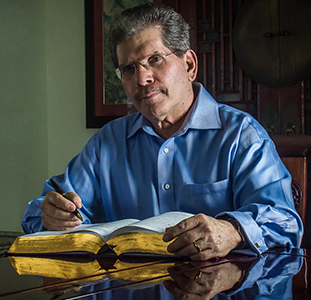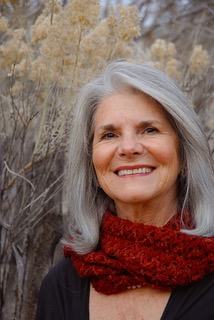Mariko is a Yoga-Ayurveda Expert with over 20 years of teaching experience, and author of the forthcoming book, "The Yoga-Ayurveda Book of Anti-Aging Secrets." A former professional dancer as well as an Ayurvedic physician trained in India, she combines scientific knowledge with an intuitive understanding of the body. Healer, yogini, and a performer with multi-cultural background, Mariko is known for the quality and depth she brings to her work. Proficient in Hindi and Sanskrit, she is one of the very few in the West to have completed the rigorous 5 ½ year B.A.M.S. (Bachelor of Ayurvedic Medicine and Surgery) degree as a fellowship scholar at Gujarat Ayurved University, an internationally recognized Ayurvedic university in India. Drawing on her background as a dancer as well as on extensive studies with spiritual luminaries of the East and West, Mariko places Yoga in its original context, linking the intricacies of physical alignment with Yoga’s spiritual purpose: the attainment of inner freedom.
After almost four decades of practice as a pediatric surgeon and nearly a decade of practicing holistic medicine, Dr. Ivan Figueroa-Otero now heals people through the guiding principles and empowering words of his Amazon best-selling series of self-improvement books. Bilingual in English and Spanish, he was a member of the Puerto Rico Medical Association, American Academy of Medical Acupuncture, American Pediatric Surgical Association, and Fellow American Academy of Medical Acupuncture. He is currently engaged in his private practice and continues in his role as an educator, trying to achieve full integration of traditional Chinese acupuncture courses in the curriculum of medical schools.
Throughout his decades-long career as a practitioner of both Western and Eastern medicine, he found that many treat symptoms by either taking doctor-prescribed medications or self-medicating instead of addressing the root of their problems. As a specialist in disease prevention and lifestyle modification, he aims to treat the whole person–not just their symptoms–through holistic Chinese medicinal techniques such as acupuncture and meditation, and often works with other specialists to get patients the help that they need.
In an Amazon best-selling series that explores the depths of the mind-body-spirt connection and offers insightful advice about how we can all better our lives, Dr. Figueroa-Otero seeks to help others find the path of self-discovery and coping with challenges. In his newest book, 'Spirituality 103 The Forgiveness Code: Finding The Light In Our Shadows' he sheds a fresh light on and offers powerful insights to the whole experience of forgiveness, a work that delves into human nature, exploring what constitutes human brokenness and how to heal it This book will help anyone understand why they are broken, feeling sick, bitter, and in pain. This is a book for those who want to experience wholeness in themselves and peace with the universe and with others.
Kristin Maxwell is a transformational speaker, consultant, and coach who guides entrepreneurs and executives to overcome even lifelong patterns of limiting beliefs, so they can operate at their full potential and accelerate business success. Kristin's specialty is taking down the harmful mind chatter that causes burnout and blocks entrepreneurs from operating at their full potential. Kristin also hosts the Your SuperPowered Mind podcast, where she uses her decades of experience as a litigation attorney and seeker of personal growth to share practical, actionable strategies individuals can use to get out of their heads -- out of anxiety, stress, insecurity and perfectionism -- and make lasting change in their lives.
I am the Owner of Amigo Bob's Organics. My involvement in the organic farming movement started with my family, Pavich Family Farms in the mid 70’s. We were the early pioneers in the organic farming business. Since then I have gone on to develop my own company, Franny’s Organic (an organic raisin company) started in 2002, and recently am an owner/founder in Amigo Bob’s Organic (an organic soil nutrient and fertilizer company).
My passion has always been centered around food, farming and healthy lifestyles. My formal education is in Clinical Psychology, which provided me the tools to work with different people on many levels helping them understand the message of what holistic healthy living means. My informal education began on the farm. I have always been a Gardener - I love growing my own food, and I love teaching others to grow their own food and prepare it in a tasty way.!
I have been a speaker on Organic Farming and healthy lifestyles at many events: National Native American Business Conference, Health Food Forms, and various Governmental forums for Agricultural and Alternative Energy to name a few.
Teresa Anne Power, the founder of Kids’ Yoga Day, is an internationally recognized expert on children’s yoga and the author of the bestselling book The ABCs of Yoga for Kids. Her book has been translated into 4 languages and is the recipient of multiple awards. Teresa has taught yoga to thousands of children, and has spoken at numerous libraries, schools, bookstores, yoga studios and school conferences across the United States. She has appeared on both local and national television and radio, and has been featured in/on Sirius XM, Fox News, Good Morning Arizona, Glamour.com, Parenting.com, Parenting Special Needs Magazine, USA Today Magazine, Girls World Magazine, Green Child Magazine, Yogi Times, and more. She was also KNX-AM “Hero of the Week”, honoring her dedication to helping yoga become accessible to children all over the world. She also writes articles about children’s health and fitness on Examiner.com and the Pali Post, teaches Children’s Yoga Training Workshops, and volunteers her yoga expertise at Let’s Move West LA, SOS Mentor, the Boys and Girls Clubs of America, Children’s Bureau, Connections for Children, Pathways, and The Neighborhood Youth Association. Teresa also sits on the board of the National Math Foundation. A graduate of University of Southern California, she earned her J.D. from Pepperdine University School of Law, and completed a yoga training program with Indigo Yoga. For more information, please visit Teresa’s website at https://www.abcyogaforkids.com/. Teresa is available for workshops, speaking engagements and instruction.
Video: https://www.youtube.com/watch?time_continue=1&v=wbyF21aww3I
Robert B Andrews - The Institute of Sports Performance
Robert Andrews works with Olympic, professional, college, high school and junior high school athletes, and attended the Beijing and London Olympics where he worked with USA and international athletes. He works with minor and major league baseball players and MLB All Stars. Robert helps athletes achieve peak levels of performance by integrating sports performance tools to increase mental and emotional toughness.
His area of specialization is helping injured athletes overcome the mental and emotional impact of sports related injuries and teaches the mental keys to peak performance in baseball.
He has worked with Olympic Gold, Silver, and Bronze Medalist, Olympic teams, athletes, and hopefuls; helped USA athletes win 13 medals, including 7 Gold Medals at the 2016 Rio Olympics. Also work with World Champions, NFL All Pros and MLB All Stars, NBA players, NBA All Stars, Heisman Trophy winners, Ray Guy Award finalist, NCAA All Americans & Champions, State Champions, All State athletes, college, high school and junior high athletes. Attended London Olympic Games. Worked with USA and International athletes in gymnastics, trampoline, and track and field. Worked with U. S. A. Men's Gymnastics at 2008 Beijing Olympics.
Key note speaker at 2017 Navy Seal Foundation Impact Summit.
Robert implemented a cutting edge model for treating the mental and emotional impact of sports related injuries. This process accelerates the recovery process dramatically. Athletes return to play confident and free of the fear of re-injury. Especially effective with ACL injuries, Tommy John recovery, broken ankles, and concussions. Seeing athletes before surgery is critically helpful.
He was the Lead sports performance consultant for U.S.A. Men's national and world gymnastics team and national, world, and Olympic team coaches as they prepared for the 2012 London Olympics. Also worked with USA Trampoline in preparation for the London Olympics. Worked with top track and field sprinters and other top track and field athletes. Their times have improved dramatically by implementing mental skills training into workout and competition regiments.
Helps college football players prepare for the NFL Combine. Evaluates talent for the NBA Combine and Draft.
Specialties: - Helping athletes reach their peak potential and reach new levels of performance
- Assist injured athletes in over-coming the mental and emotional blocks that limit their confident return to play after injury-Help organizations create a positive winning culture.
Author of 'Champion's Mental Edge: Turning Winners into Champions' on Amazon.
Before my coaching practice, I spent more than twenty years as a public health dentist, researcher and academician. I’ve held numerous leadership positions including an endowed professor and department chair.
After my own experiences dealing with a variety of leadership styles, I became interested in learning more about what makes an effective and inspiring leader. On this path, I uncovered a great deal about myself and what was involved to be an effective and inspiring leader. I decided to take what I learned to help others understand themselves more fully.
I work with individuals who want to live authentic and fulfilling lives and who are committed to understanding themselves, their behaviors and reactions. I believe that everyone has inherent leadership potential whether they are leaders in organizations, within their families or in their relationships. One of the most important attributes of a successful leader is self-awareness.















